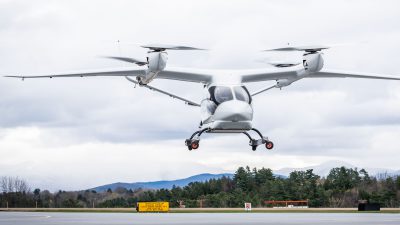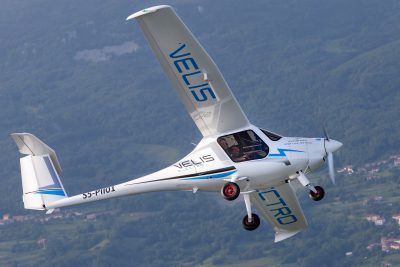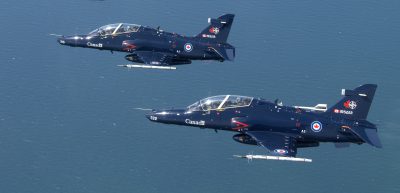
- Beta Technologies of Vermont announced last week a partnership with Signature Aviation that will see electric aircraft chargers installed at two more Signature FBOs on the U.S. East Coast. One has already been installed at Manchester-Boston Regional Airport. Beta is developing electric VTOL and conventional takeoff cargo and passenger aircraft. See this week’s featured video of a Beta Alia-250 eVTOL cross-country flight.

- Here in Canada, the Vancouver Island city of Courtenay is considering a request by Campbell River-based Sealand Flight to install an electric charging station to allow its recently acquired Pipistrel Velis Electro to recharge after flying cross-country from its base, located about 20 nm to the northwest. (See the current [Mar-Apr 2024] edition of Canadian Aviator for a report on Sealand’s Velis.)
- McFarlane Aviation of Kansas has acquired PMA Products, Inc. of North Carolina. The two general aviation parts developers and manufacturers have collaborated extensively for several years. “There’s no better company to take the reins of our business going forward,” said PMA founder Charlie Causey. PMA joins other McFarlane-owned brands including CJ Aviation, Flight-Resource (MT Propellers) and Airforms. McFarlane is in turn owned by Vance Street Capital LLC of Los Angeles, which purchased it in 2021.
- CFB Trenton will receive $850 million in funding to allow for some of the RCAF’s new fleet of nine CC-330 Husky aircraft to be based there. The Airbus-manufactured and modified aircraft is replacing the fleet of CC-150 Polaris which are now over 40 years old. Much of the new funding will go to building new hangars and upgrading existing runways, taxiways and aprons. A not-yet-specified number of CC-330 Huskies will be based in western Canada and at least one forward operating location.

- Meanwhile, the RCAF announced last week that it will retire its fleet of CT-155 Hawk advanced training jets. This will leave a gap in RCAF pilot training as it is the last training aircraft in the RCAF’s phased training program leading to CF-18 qualification. The RCAF will look for a suitable contractor among Canada’s allies to fill the gap. It brings to mind U.S. president Franklin Roosevelt’s observation, referring to Canada’s hosting of the British Commonwealth Air Training Plan during the Second World War, that Canada was the world’s “aerodrome of democracy” having trained 50,000 pilots from around the world.
